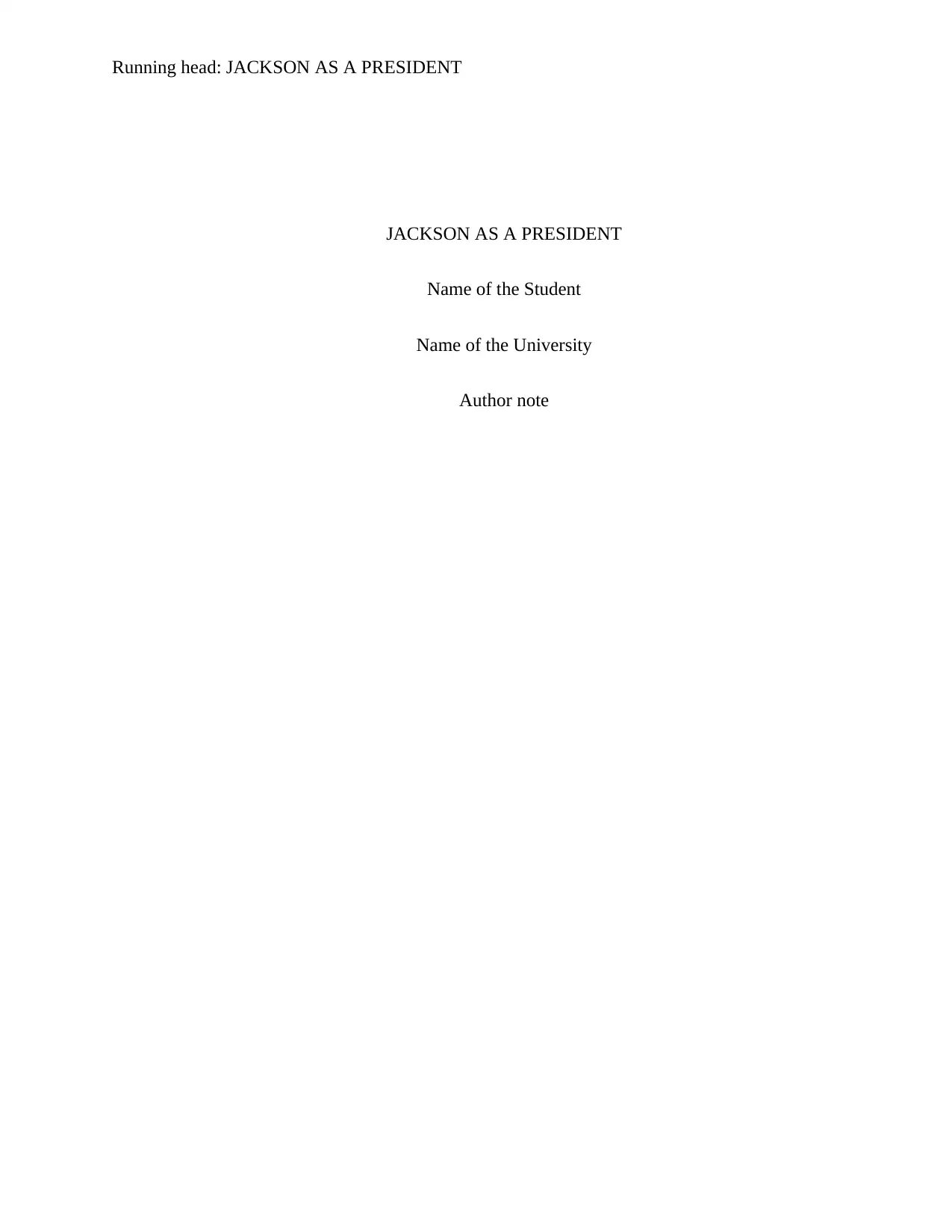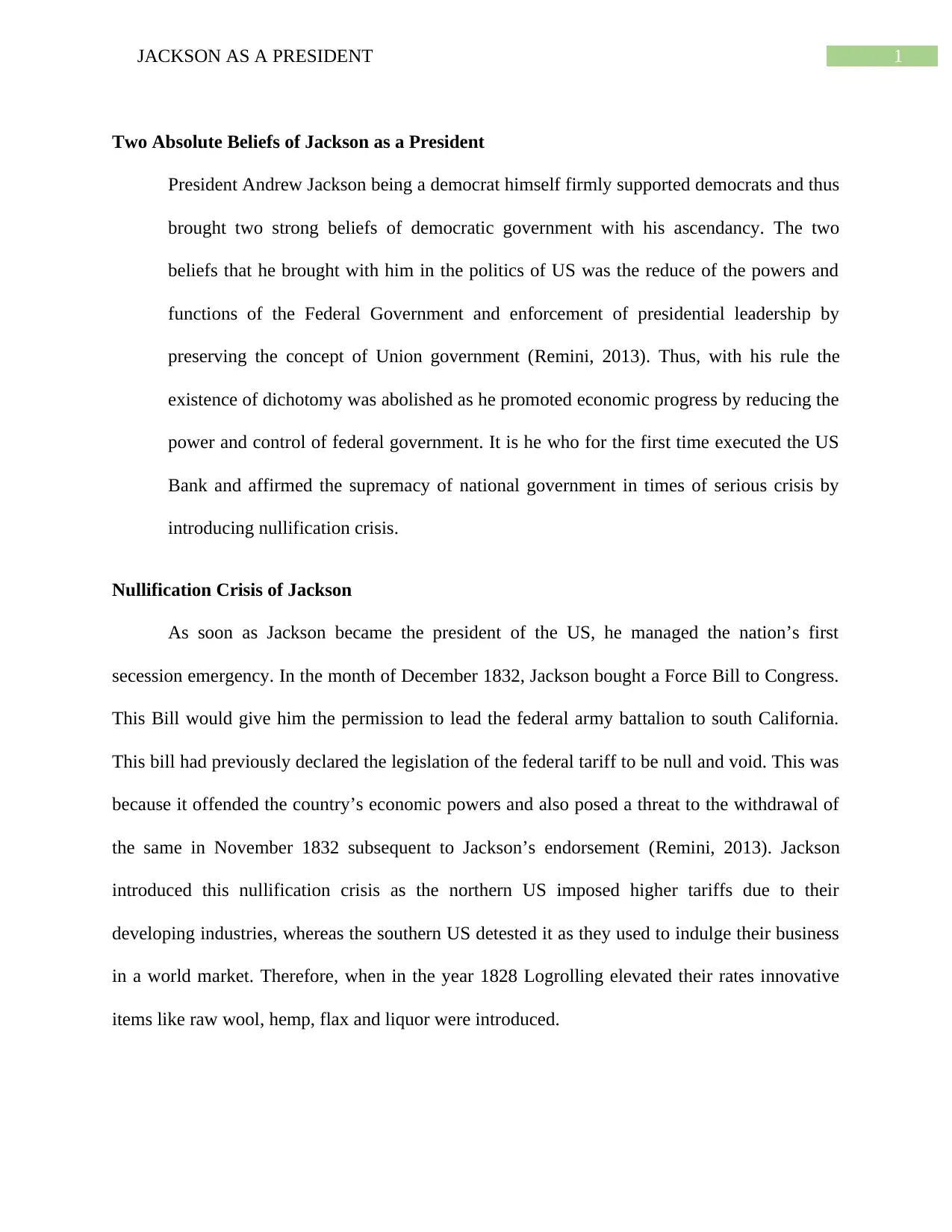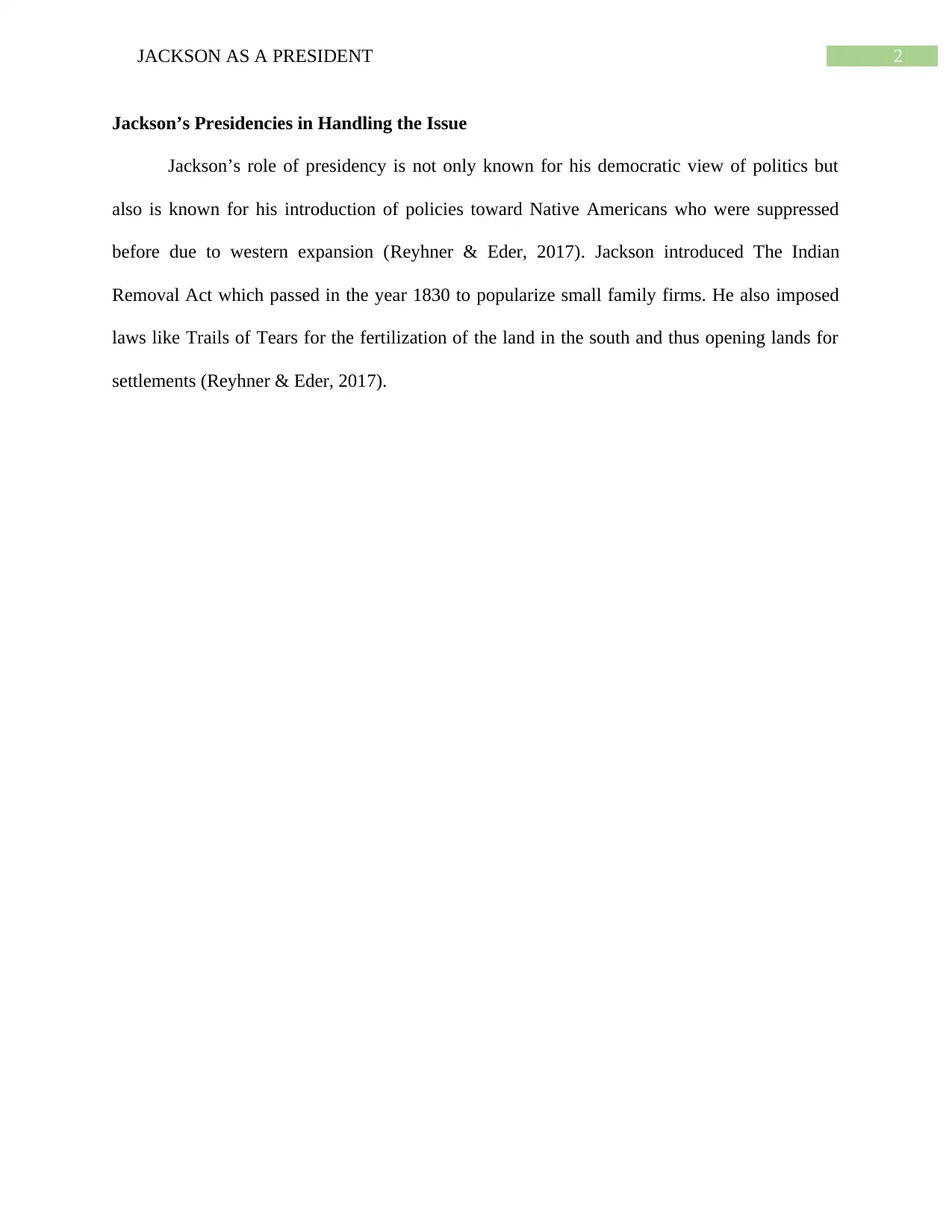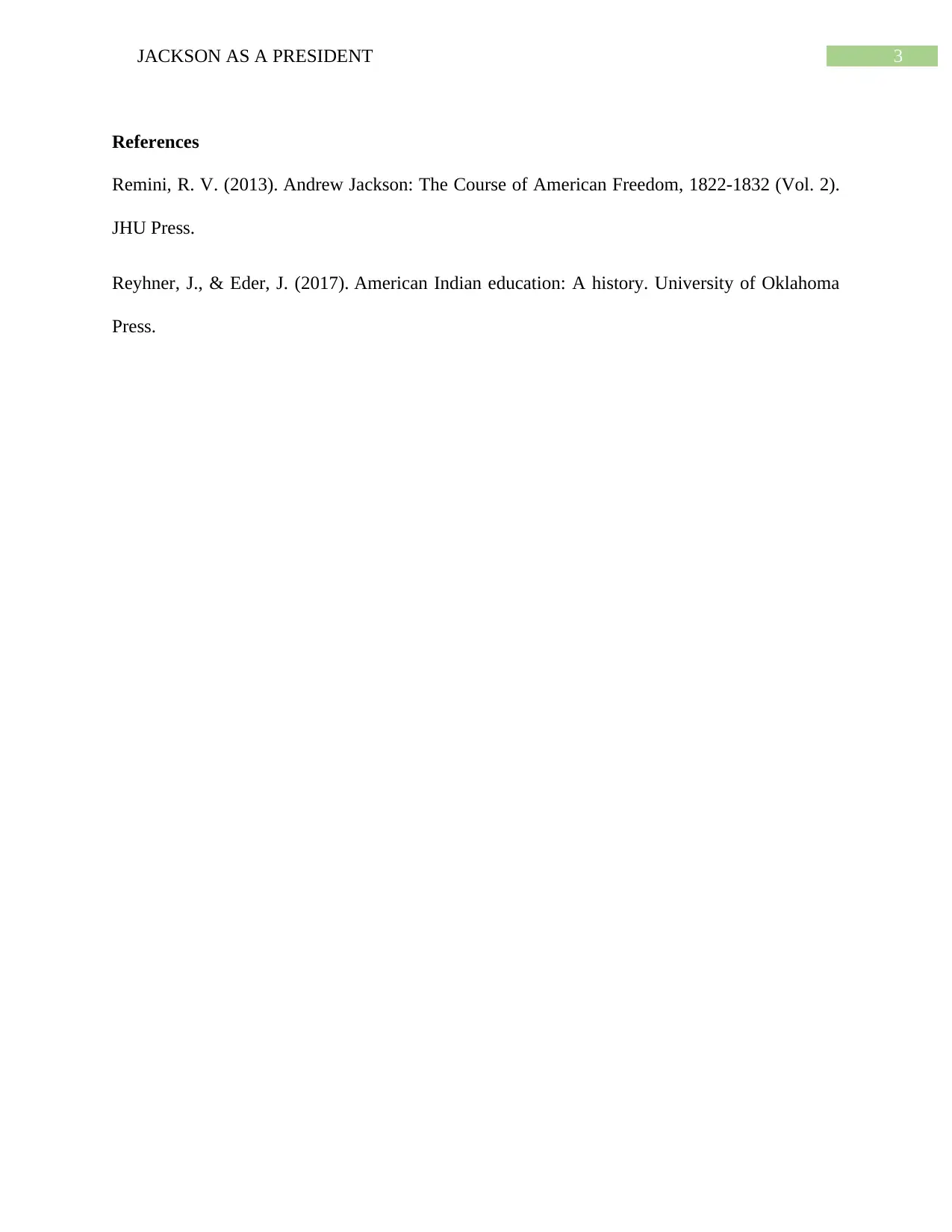Andrew Jackson and His Impact on American Politics and Society
VerifiedAdded on 2020/04/13
|4
|481
|51
Essay
AI Summary
This essay delves into the presidency of Andrew Jackson, examining his key policies and their historical significance. It explores the reduction of federal government powers, the enforcement of presidential leadership, and the impact of his decisions on the nation. The essay analyzes the Nullification Crisis, highlighting Jackson's role in asserting the supremacy of the national government. Furthermore, it examines the Indian Removal Act and its consequences. The essay references relevant scholarly sources, providing a comprehensive overview of Jackson's presidency and its influence on American politics and society. This assignment provides a detailed analysis of Jackson's actions and their impact on the United States.
1 out of 4











![[object Object]](/_next/static/media/star-bottom.7253800d.svg)